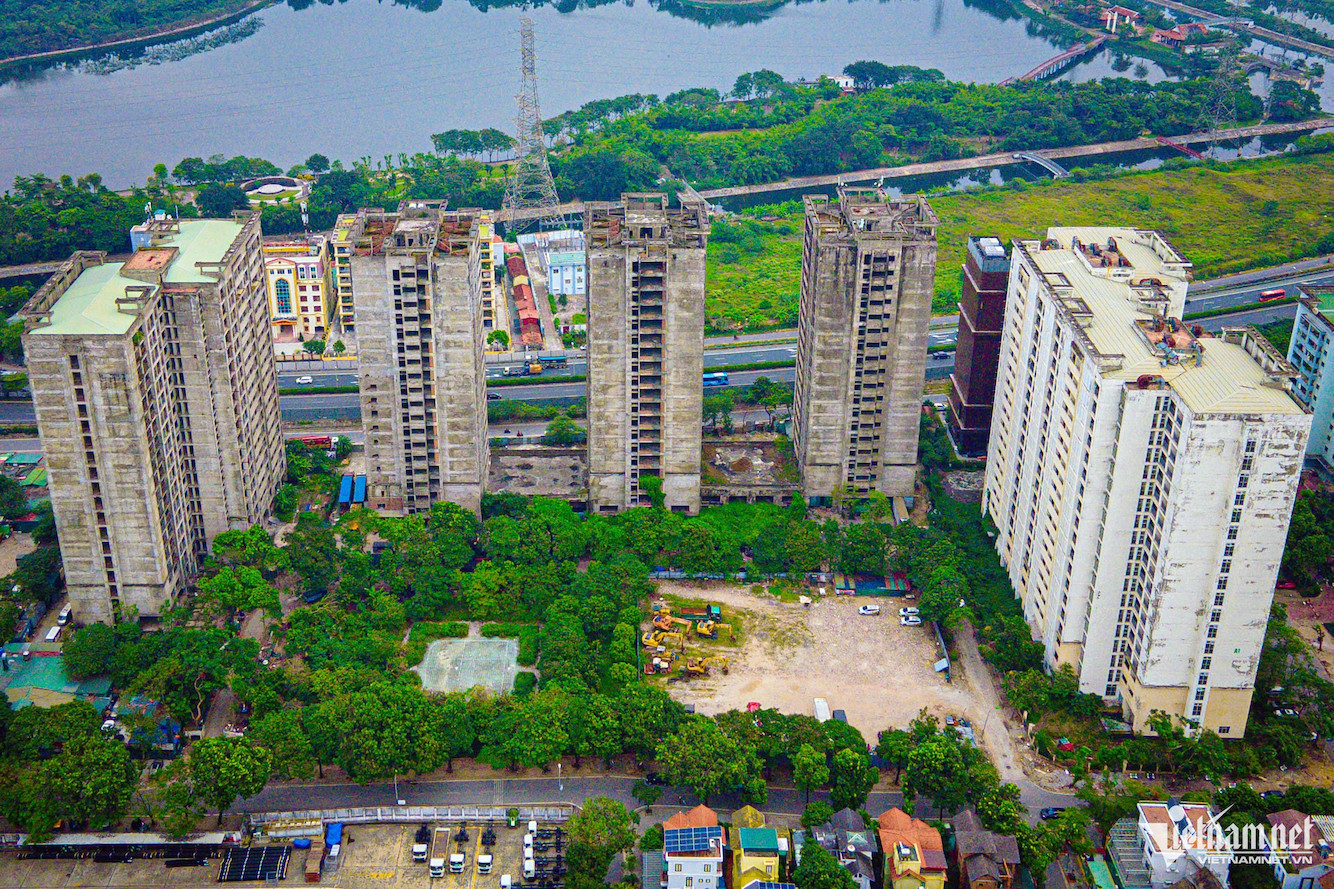
The agency reported that 69 social housing projects have been deployed. Since 2021, 0.64 million sq m of social housing floor area, with 10,270 apartments of 8 projects, have been completed and three projects have been partially implemented.
It is expected that 0.345 million sq m of social housing floor area and 5,923 apartments of 11 projects will be completed in 2024-2025.
As such, with 19 projects expected to be completed in 2021-2025, with 0.952 million sq m of social housing floor area, about 15,440 apartments, 78.3 percent of the targeted social housing plan (1.215 million sq m of floor area) will be available.
Also according to the Hanoi Construction Department, 50 projects are being deployed for the 2026-2030 period, with 3.21 million sq m of floor area, and 57,170 apartments.
Sources said Hanoi is appraising the investment plan to organize auctions to select investors for four out of five social housing quarters (independent) located in the districts of Dong Anh, Gia Lam and Me Linh, with total land use area of over 200 hectares, with 12,000 apartments.
These include two social housing quarters in Tien Duong commune in Dong Anh district; Co Bi commune of Gia Lam district, Dai Mach commune in Dong Anh district and Tien Phong commune in Me Linh district.
The supply of social housing products in Hanoi will increase once the quarter for students in Phap Van – Tu Hiep new urban area is shifted to social housing for lease.
The Hanoi People’s Committee has assigned the construction department to draw up and submit dossiers for projects on upgrading A2 and A3 blocks in 2024, so that the upgrading can be completed by 2026, and the A4 upgrading can be completed by 2027 at the latest.
In addition, the municipal authorities have assigned the Department of Planning and Architecture to join forces with districts’ authorities, the Hanoi Industrial Zone and Export Processing Zone Management Board to check and supplement 15 land banks to create independent large-scale social housing quarters (2,000 apartments for each quarter). Of these, 2-3 quarters will be located near industrial zones.
The Hanoi Construction Department commented that social housing in the city remains limited. There has been no social housing project developed with the state budget since 2015.
The number of developed social housing projects is modest, while projects have been implemented at a very slow pace.
This is attributed to complicated procedures on selecting investors through auctions. In many cases, it is difficult to select investors because of problems related to the legal framework on public assets. Meanwhile, the preferential policies applied to social housing development are not that attractive to developers.
Current legal documents, including the 2023 Law on Housing, only stipulate that provincial people’s committees give support in building technical infrastructure outside social housing projects’ fences, not inside projects. Therefore, the projects cannot attract investors, or cannot satisfy their expectations for financial efficiency.
Municipal and provincial authorities are not allowed to build specific policies to attract investment for their localities.
The development of low-cost, social housing apartments is one of the important issues of the real estate market. Experts pointed out that the current housing structure is unreasonable with the lack of affordable products.
Le Hoang Chau, chair of the HCM City Real Estate Association (Horea), said the overly high land and housing prices are hindering sustainable development of the real estate market.
In Hanoi and HCM City, about 70 percent of new supply are high end and super luxurious products. There are more and more products worth $1 million, while affordable housing products no longer exist.
Experts have voiced concern about overly high prices and suggested taxing real estate to solve the problem.
Chau stressed that it is necessary to apply a real estate taxation policy, because the tool can help regulate the market if it is controlled by speculation, or gets frozen.
However, it is necessary to arrange resources to build a database on real estate transactions and prices.
Nguyen Thi Phuong Hoa, Deputy Minister of Natural Resources and the Environment, said the government has proposed allowing investors to use agriculture and non-agriculture land for commercial housing development projects for five years on a trial basis.
If the proposal gets approval at the eighth NA’s session, it will help improve supply in the market, thus helping cool housing prices down.
Hong Khanh